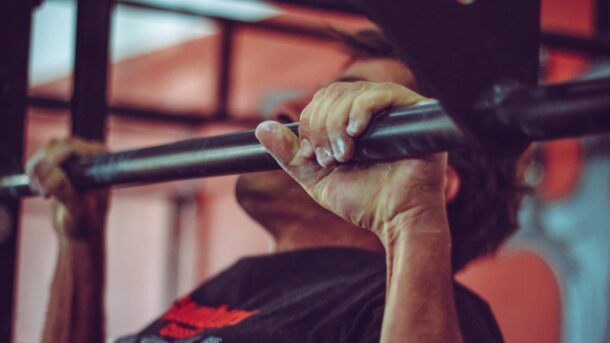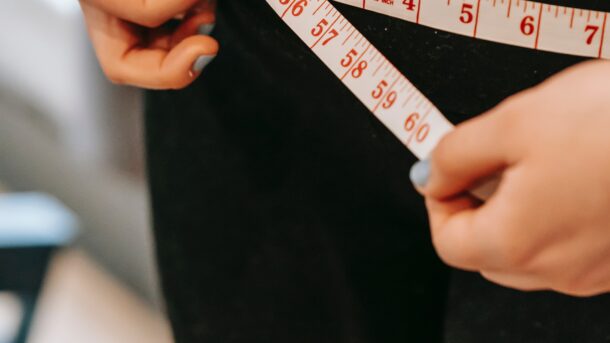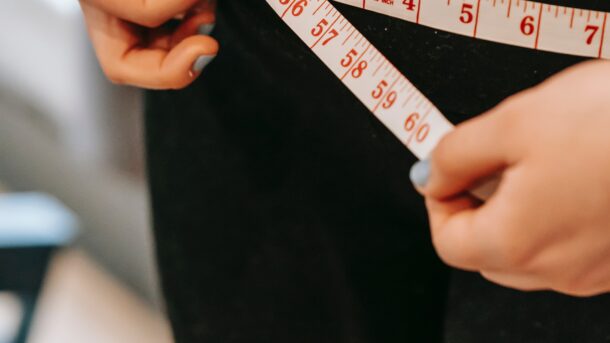Your body mass index, or BMI, is a measure of your body fat based on your height and weight. A BMI of 19.1 falls within the “healthy” range — between 18.5 and 24.9 — meaning that you have a healthy amount of body fat.
However, keep in mind that BMI is not a perfect measure of health, as it does not take into account factors such as muscle mass or bone density.
If you are concerned about your health, talk to your doctor about other ways to assess your fitness level. Other measures of body fat, such as waist circumference, can give you a more accurate picture of your health. Having a BMI of 19.1 means that you have a healthy amount of body fat.
Remember, BMI is just one tool to help you assess your overall health. It’s not the be-all and end-all. If you have any concerns about your health, talk to your doctor. They can help you figure out what steps you need to take to stay healthy and fit.
How Do You Calculate BMI?
Body mass index (BMI) is a measure of body fat based on height and weight that applies to both adult men and women.
To calculate BMI, divide your weight in kilograms by your height in meters squared. You can also use our BMI calculator.
A BMI between 18.5 and 24.9 kg/m2 is considered healthy, 25 to 29.9 is considered overweight, and 30 or greater is considered obese.
BMI does not directly measure body fat but research has shown that it is a good indicator of body fatness for most people. However, there are some limitations to using BMI:
- It may overestimate body fat in people who have a lot of muscle (such as athletes) or who are pregnant.
- It may underestimate body fat in older adults and people who have lost muscle mass (such as those with a wasting disease).
How Do I Know If I Am Overweight Or Obese?
Your health care provider can measure your body fat directly, but this is usually done only in research settings.
More often, health care providers use BMI to estimate whether someone is overweight or obese. You can also calculate your own BMI using our BMI calculator.
- Adults with a BMI of 30 or greater are considered obese.
- Adults with a BMI of 25 to 29.9 are considered overweight.
- Adults with a BMI of 18.5 to 24.9 are considered a healthy weight.
Children and teens have different definitions of overweight and obesity because they are growing and developing at different rates.
The Centers for Disease Control and Prevention (CDC) has a BMI calculator for children and teens that takes into account their age and gender.
What Are The Health Risks Of Being Overweight Or Obese?
Overweight and obesity increase your risk for many health conditions, including:
- High blood pressure.
- High cholesterol.
- Type 2 diabetes.
- Coronary artery disease (CAD).
- Stroke.
- Gallbladder disease.
- Osteoarthritis (a breakdown of cartilage and bone within a joint).
- Sleep apnea (when a person stops breathing for short periods during sleep) and respiratory problems.
Being overweight or obese also increases your risk of some cancers, including endometrial, breast, colon, gallbladder, kidney, ovarian, and pancreatic cancer.
What Is A Healthy BMI Score?
A healthy BMI score is between 20 and 25. A score below 20 indicates that you may be underweight; a score above 25 indicates that you may be overweight.
If your BMI is:
- Below 18.5, you are considered underweight.
- Between 18.5 and 24.9, you are considered a healthy weight.
- Between 25 and 29.9, you are considered overweight.
- Above 30, you are considered obese.
- Above 40, you are considered morbidly obese.
If you are considered overweight or obese, it is important to speak to your GP about losing weight in a healthy way. They may be able to refer you to a dietitian or other healthcare professional for further help.
How Can I Maintain A Healthy Weight?
There are many factors that contribute to a person’s weight. Genetics, age, gender, metabolism, and lifestyle all play a role in how much a person weighs.
Maintaining a healthy weight is important for overall health and well-being. Being overweight or obese increases the risk for many chronic diseases, including heart disease, stroke, diabetes, and certain types of cancer.
There are several things you can do to maintain a healthy weight:
1. Eat a healthy diet. Focus on eating plenty of fruits, vegetables, whole grains, and lean protein. Avoid processed foods, sugary drinks, and excessive amounts of saturated and unhealthy fats.
2. Get regular exercise. Exercise not only helps you lose weight, but it also helps to keep your weight down. Aim for at least 30 minutes of moderate-intensity exercise most days of the week.
3. Avoid tobacco use. Tobacco products are not only harmful to your health, but they can also lead to weight gain. If you smoke, quitting is one of the best things you can do for your health.
4. Control stress levels. Stress can lead to unhealthy coping mechanisms, such as overeating or excessive drinking. Find healthy ways to manage stress, such as exercise, meditation, or time with friends and family.
5. Get enough sleep. Sleep deprivation can lead to weight gain by affecting hormones that regulate appetite and metabolism. Most adults need at least 7 hours of sleep per night.
Maintaining a healthy weight is important for overall health and well-being. There are several things you can do to maintain a healthy weight, including eating a healthy diet, getting regular exercise, avoiding tobacco use, controlling stress levels, and getting enough sleep. By taking these steps, you can improve your health and reduce your risk for chronic diseases.
Conclusion
While BMI is not the only indicator of health, it can be a helpful tool in assessing whether you may be at risk for health problems associated with being overweight or obese.
If your BMI falls into the “overweight” or “obese” categories, don’t panic, there are many things you can do to improve your health and maintain a healthy weight.
Start by making small changes to your diet and physical activity habits, and consult your doctor for advice on how to create an individualized plan that works best for you.












Recent Comments